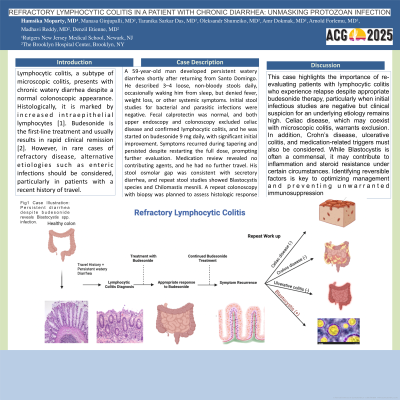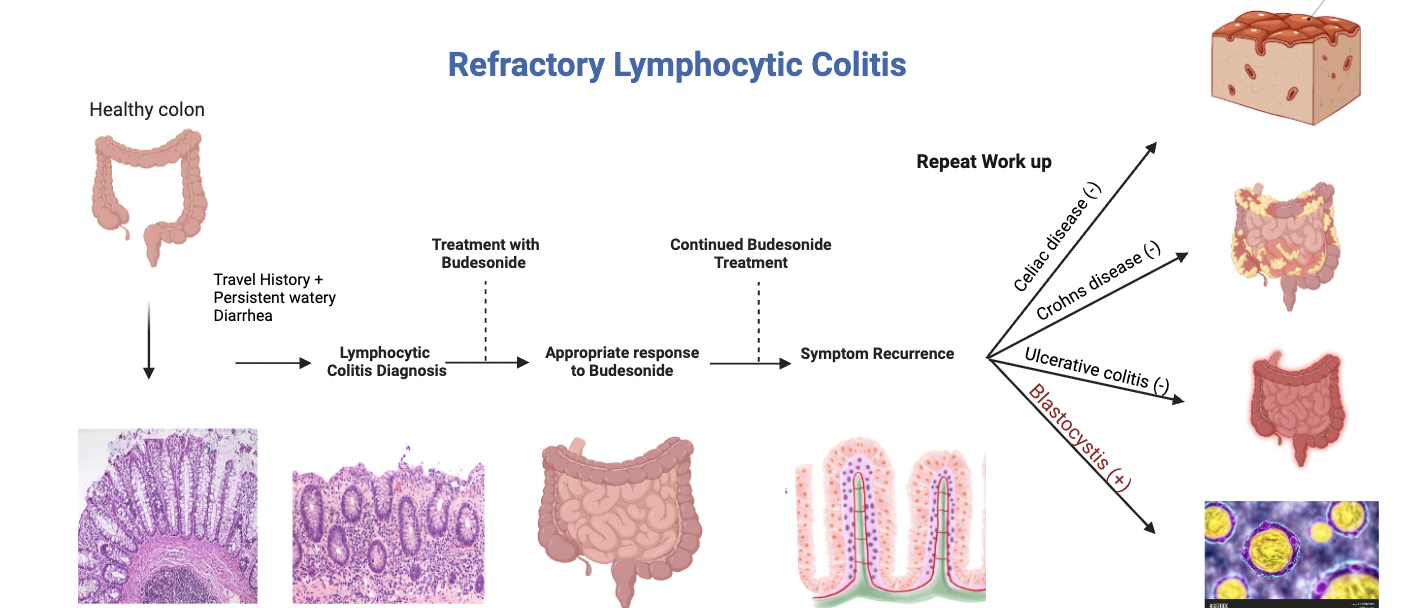Sunday Poster Session
Category: Colon
P0326 - Refractory Lymphocytic Colitis in a Patient With Chronic Diarrhea: Unmasking Protozoan Infection Refractory Lymphocytic Colitis in a Patient With Chronic Diarrhea: Unmasking Protozoan Infection


Hamsika Moparty, MD
Rutgers New Jersey Medical School
Newark, NJ
Presenting Author(s)
1Rutgers New Jersey Medical School, Brooklyn, NY; 2Brooklyn Hospital Center, Brooklyn, NY; 3The Brooklyn Hospital Center, Brooklyn, NY
Introduction:
Case Description/Methods:
Discussion:
This case highlights the importance of re-evaluating patients with lymphocytic colitis who experience relapse despite appropriate budesonide therapy, particularly when initial infectious studies are negative but clinical suspicion for an underlying etiology remains high. Celiac disease, which may coexist with microscopic colitis, warrants exclusion. In addition, Crohn’s disease, ulcerative colitis, and medication-related triggers must also be considered. While Blastocystis is often a commensal, it may contribute to inflammation and steroid resistance under certain circumstances. Identifying reversible factors is key to optimizing management and preventing unwarranted immunosuppression.
References:
Pardi DS, Kelly CP. Microscopic colitis. Gastroenterology. 2011;140(4):1155–1165.
Münch A, Aust D, Bohr J, et al. Microscopic colitis: current status, present and future challenges. J Crohns Colitis. 2012;6(9):932–945.

Disclosures:
Hamsika Moparty, MD1, Manasa Ginjupalli, MD2, Taranika Sarkar Das, MD3, Oleksandr Shumeiko, MD2, Amr Dokmak, MD2, Arnold Forlemu, MD2, Madhavi Reddy, MD3, Denzil Etienne, MD3. P0326 - Refractory Lymphocytic Colitis in a Patient With Chronic Diarrhea: Unmasking Protozoan Infection Refractory Lymphocytic Colitis in a Patient With Chronic Diarrhea: Unmasking Protozoan Infection, ACG 2025 Annual Scientific Meeting Abstracts. Phoenix, AZ: American College of Gastroenterology.
